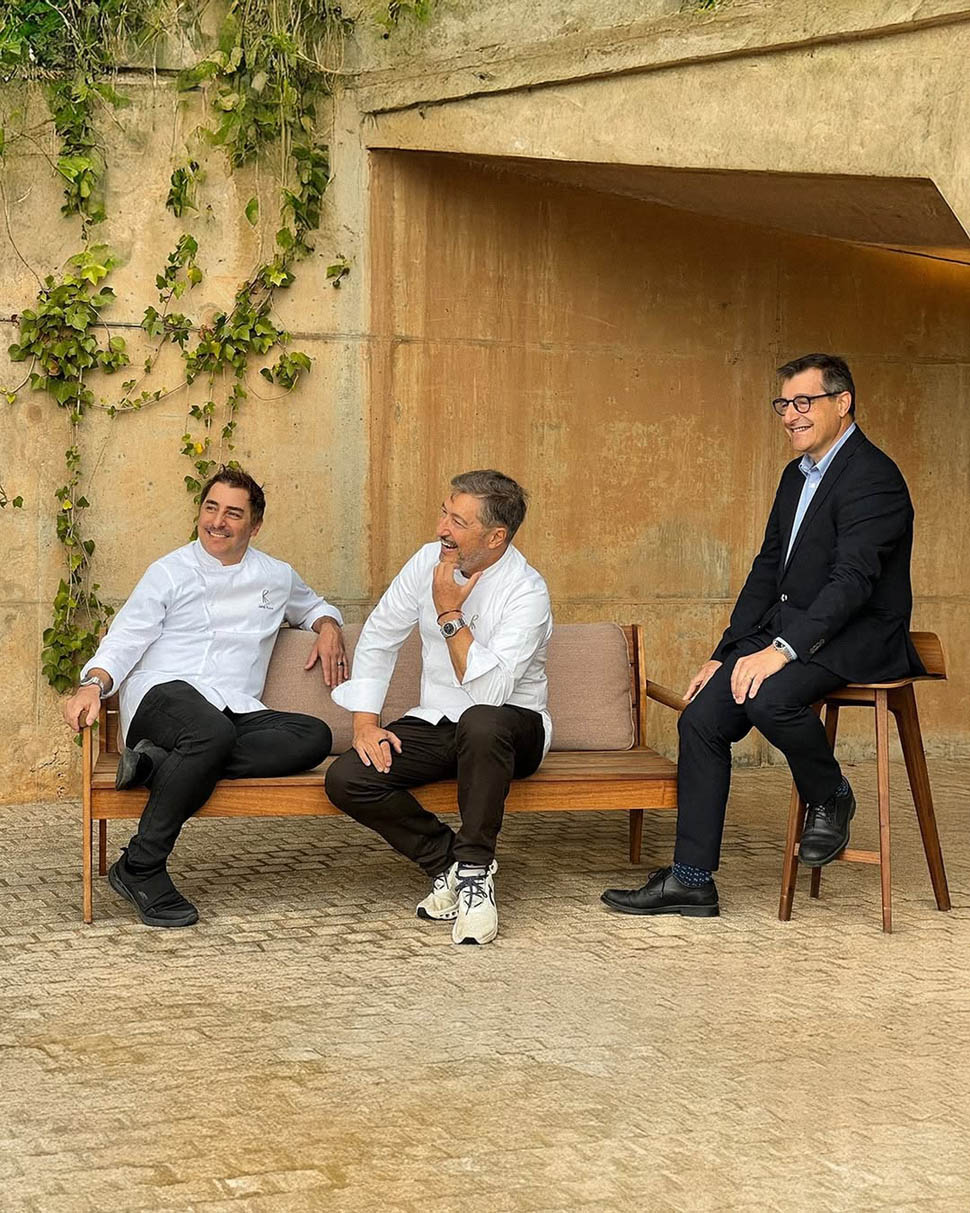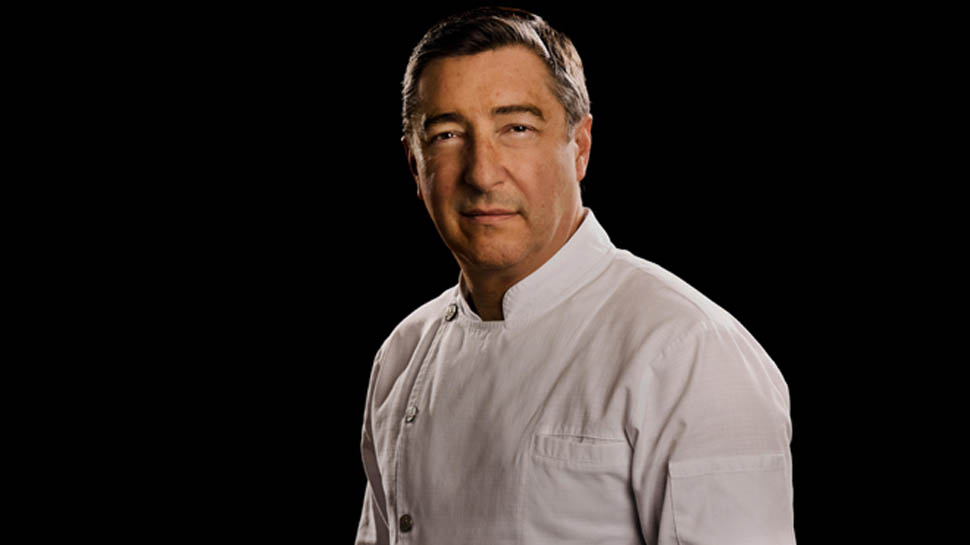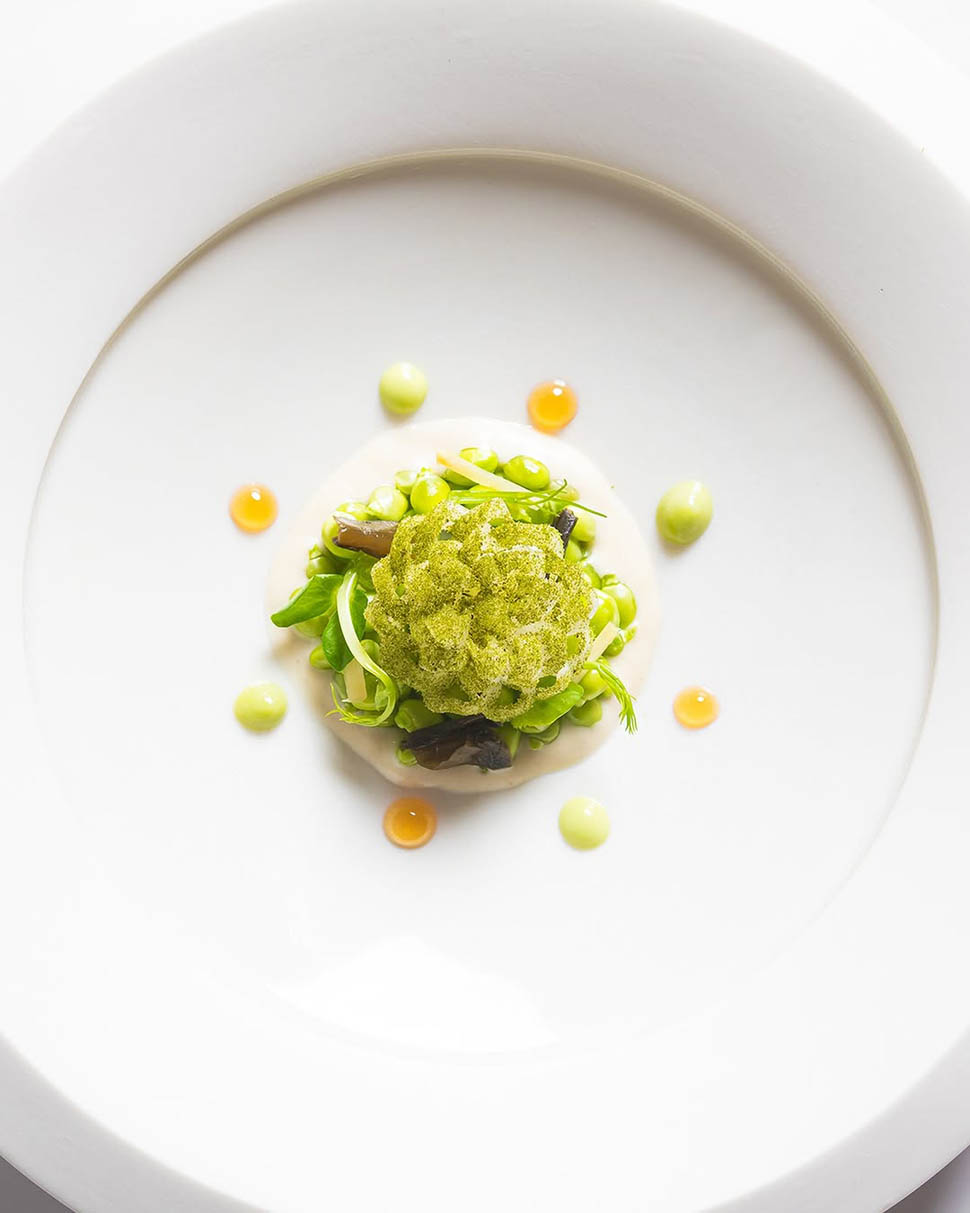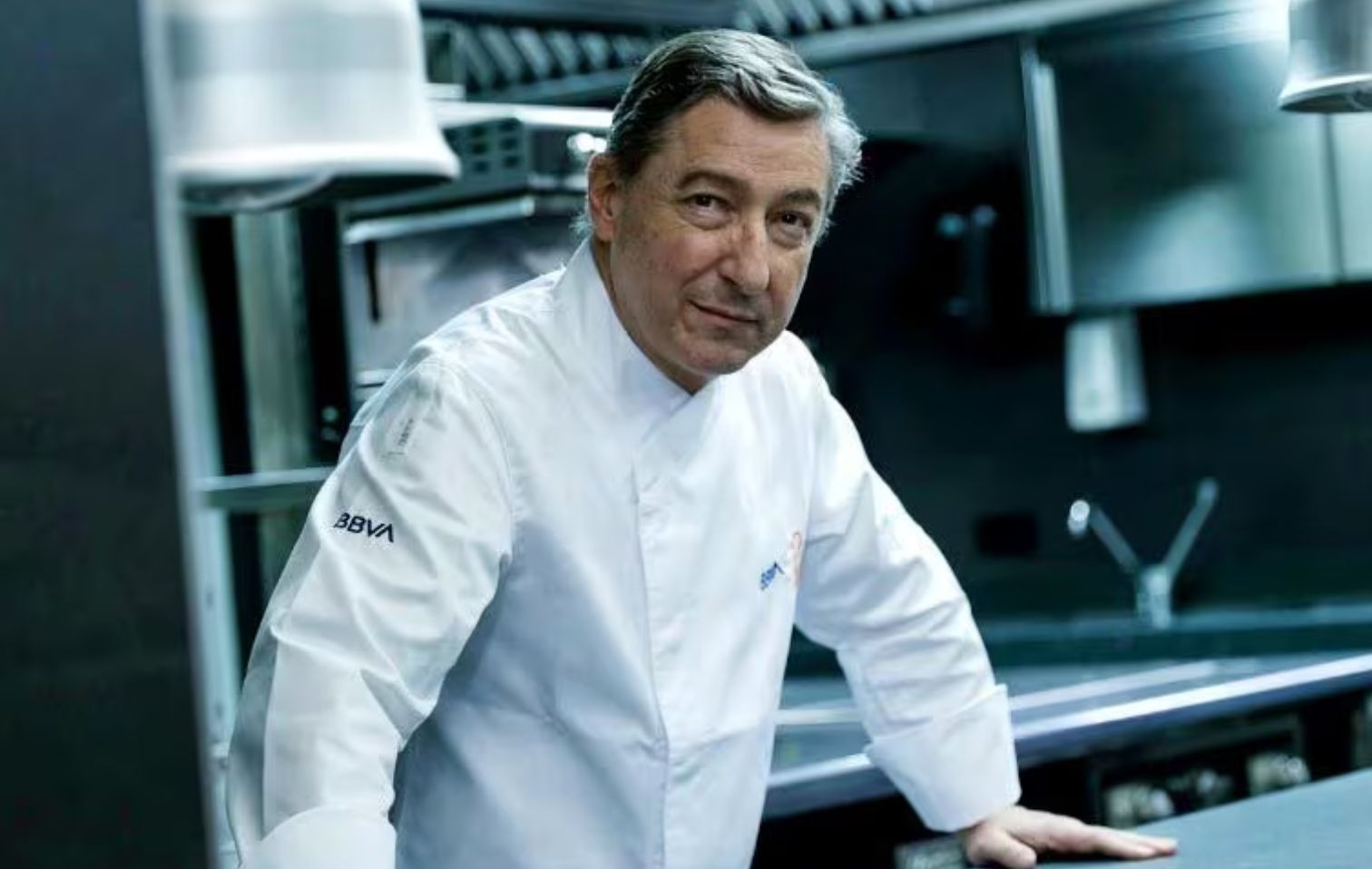The celebrated chef firmly believes that cooking should enter the school curriculum in its own right. “A flan, a roast, a vinaigrette, a syrup, a marinade or pickled olives are chemical reactions,”, he explains, highlighting how the culinary art is also a scientific knowledge to be learned and passed on.
Cover photo: © cellerrocabbva
Food as a human and social act
Roca makes a heartfelt plea for food to be recognized as “the basis of humanity's future.” In his view, we need to rediscover the human dimension of the food we bring to the table-harvested or produced by artisans according to secular practices-to make a conscious selection of raw materials. An issue that is also of deep concern to other big names in international catering. From meals served in hospitals and nursing homes to school and work canteens, Roca raises important questions about what we are offering to present and future generations: is it really the best?
“Cooking is science”: a knowledge to be taught.
The celebrated chef firmly believes that cooking should be a full part of the school curriculum. “A flan, a roast, a vinaigrette, a syrup, a marinade or pickled olives are chemical reactions,”, he explains, highlighting how the culinary art is also a scientific knowledge to be learned and passed on. Roca wonders why elementary school do not teach cooking in science classes, and reiterates that doing so would mean building a more conscious and sustainable future. Education, in fact, starts at a young age!

Educating by cooking, cooking by educating
The proposal is clear: teach children to cook, from an early age, in the family and at school. “Only in this way can we avoid leaving all our nutrition in the hands of the food industry,”, says the great chef from Girona. His is an invitation to rediscover the pleasure and value of cooking together, as an educational, affective and cultural gesture. We must not lose the gastronomic manual skills of yesteryear.
A gastronomy in transformation
Roca notes how today's catering is crossed by multiple currents. “There is no uniformity,”, he says, but he enthusiastically notes a growing focus on sustainability, local produce, respect for the environment and the recovery of traditions. All this goes hand in hand with a push toward innovation and creativity, in a continuous dialogue between past and future. Joan Roca's cuisine is a perfect example of this harmony: ancient flavors and avant-garde techniques blend in his dishes, in an “idealist revolution” that also involves other disciplines such as science, industrial engineering and even virtual reality. Roca never stops: his gaze is always projected beyond.

Young people's return to the cuisine of their origins
A positive sign? The interest of young people in traditional cuisine. “It was not seen before, and it is very good,”, comments the chef. He enthusiastically sees a new generation ready to recover contact with the primary sector, but without giving up experimentation and the dream of new gastronomic worlds. “I am a radical optimist by conviction, and I think we are living in a good moment,”, he states with conviction.
The value of the gastronomic community
Events like the Fórum Gastronomico de Galicia, in which Roca participates, are proof that there is no shortage of quality and ideas in Spain. “We have been a reference for international gastronomy for years,”, he recalls. And today, more than ever, the restaurant's local spirit, sustainability and loyalty to its roots are mixed with innovation and creativity.

El Celler de Can Roca: a dream forty years long
The family restaurant, El Celler de Can Roca, is about to turn 40, but the spirit with which it is carried on is still young, vital, passionate. The three brothers-Joan, Josep and Jordi-continue to take care of the kitchen, wine and pastry, respectively, keeping the soul of the project alive. Recognized in 2013 and 2015 as the best restaurant in the world by The World's 50 Best Restaurants, the Celler has become an institution, without ever losing its connection to its origins. Innovation also continues through new projects. Esperit Roca, an initiative designed to involve new generations of the family, including the chef's son and grandson, was recently born. In April, meanwhile, Fontané, a restaurant bearing the surname of Roca's mother and offering traditional Catalan cuisine, will open. “Innovative and modern, but always committed to keeping the roots alive”: this is how Roca sums up the heart of his philosophy. A precious balance that is reflected not only in his dishes, but also in his vision of society and the future.











